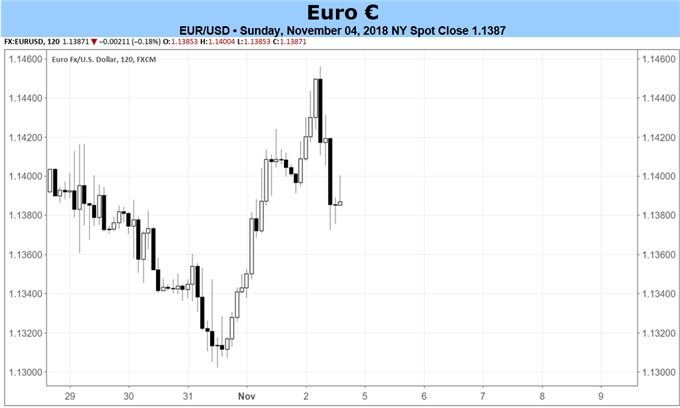

Fundamental Forecast for EUR/USD: Neutral
The Euro was the third-worst performing major currency for the second week in a row, losing ground against all but the Swiss Franc (EUR/CHF +0.52%) and Japanese Yen (EUR/JPY +1.01%). This was no fault of the Euro; rather, buoyed risk appetite lifted higher yielding currencies, and progress on the Brexit front sparked a British Pound reversal (EUR/GBP -1.24%).
To this end, as the world’s reserve currency, the US Dollar proved weak relative to the Australian and New Zealand Dollars too. EUR/USD only dropped by -0.33% last week, but three of the four best performing EUR-crosses were safe havens (EUR/CHF, EUR/JPY, and EUR/USD).
Unfortunately for traders, there may not be much to extrapolate from the price action seen last week. The movements seen in higher yielding and risk-correlated assets appears to be tied to portfolio rebalancing effects after a volatile October. With the DXY Index gaining +2.10% and US equity markets losing their most since at least September 2011, it only seems normal that the new trading month would see rebalancing result in a bump in risk appetite. Because of this, it’s difficult to suggest that what was seen last week will bear any predictive implications for what’s to come in the days ahead.
The quiet economic calendar over the first full week of November does little favor for the Euro, insofar as the Euro is lacking any concrete drivers on its own terms (but for the slight dovish shift at the European Central Bank’s October policy meeting). The data that has been released has been disappointing, with the Eurozone Citi Economic Surprise Index falling to -56.7 at the end of last week, down from -29.3 on October 5.













Leave A Comment